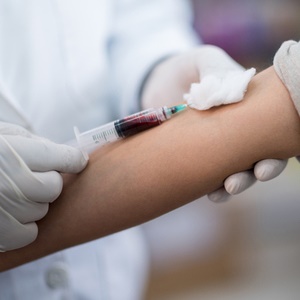
According to a reviewed Health24 article there is no laboratory test that can detect the presence of autism. It is essentially a diagnosis made through clinical observation by trained professionals.
This appears to have changed as researchers are now claiming that an experimental blood test has shown promise as a novel way to diagnose autism in children.
The test appears to be nearly 98% accurate in kids between the ages of three and 10, the researchers claimed.
"The test was able to predict autism, regardless of where on the spectrum an individual was," said study co-author Juergen Hahn, referring to varying degrees of autism severity.
Accurate national autism statistics in South Africa are hard to come by but with just nine specifically tailored schools in the entire country, an estimated 135 000 autistic children are not getting the specialised education they need.
Key metabolism markers
The current standard approach to diagnosing autism typically entails a consensus drawn from a group of medical professionals, including paediatricians, psychologists, occupational therapists, and speech and language experts.
But the new blood test takes a different approach, focusing instead on identifying the presence of key metabolism markers.
To test the idea, the study authors collected blood samples from all 159 children. The analysis turned out to be nearly flawless in diagnosing autism cases, the researchers said. It was also more than 96% accurate in identifying those children who did not have autism, the researchers added.
Molecular changes
Hahn said it remains unclear if the test's preliminary success would extend to children younger than three.
"Ideally, one would like to test this on children 18 to 24 months of age," he said. "But this has not yet been done, and as such we do not know where the limits are."
Hahn added that it's also unknown whether the test might forecast the onset of autism among children who have not yet developed any clinical signs of the disorder.
Mathew Pletcher, vice president and head of genomic discovery at Autism Speaks, expressed reservations about the way the current blood test study was designed.
"There has been considerable work done in this area, and a number of studies have produced preliminary data suggesting the presence of a single or a combination of molecular changes that could differentiate individuals with autism from those without autism," Pletcher said.
Read More:
Genital herpes in pregnancy doubles autism risk




 Publications
Publications
 Partners
Partners











